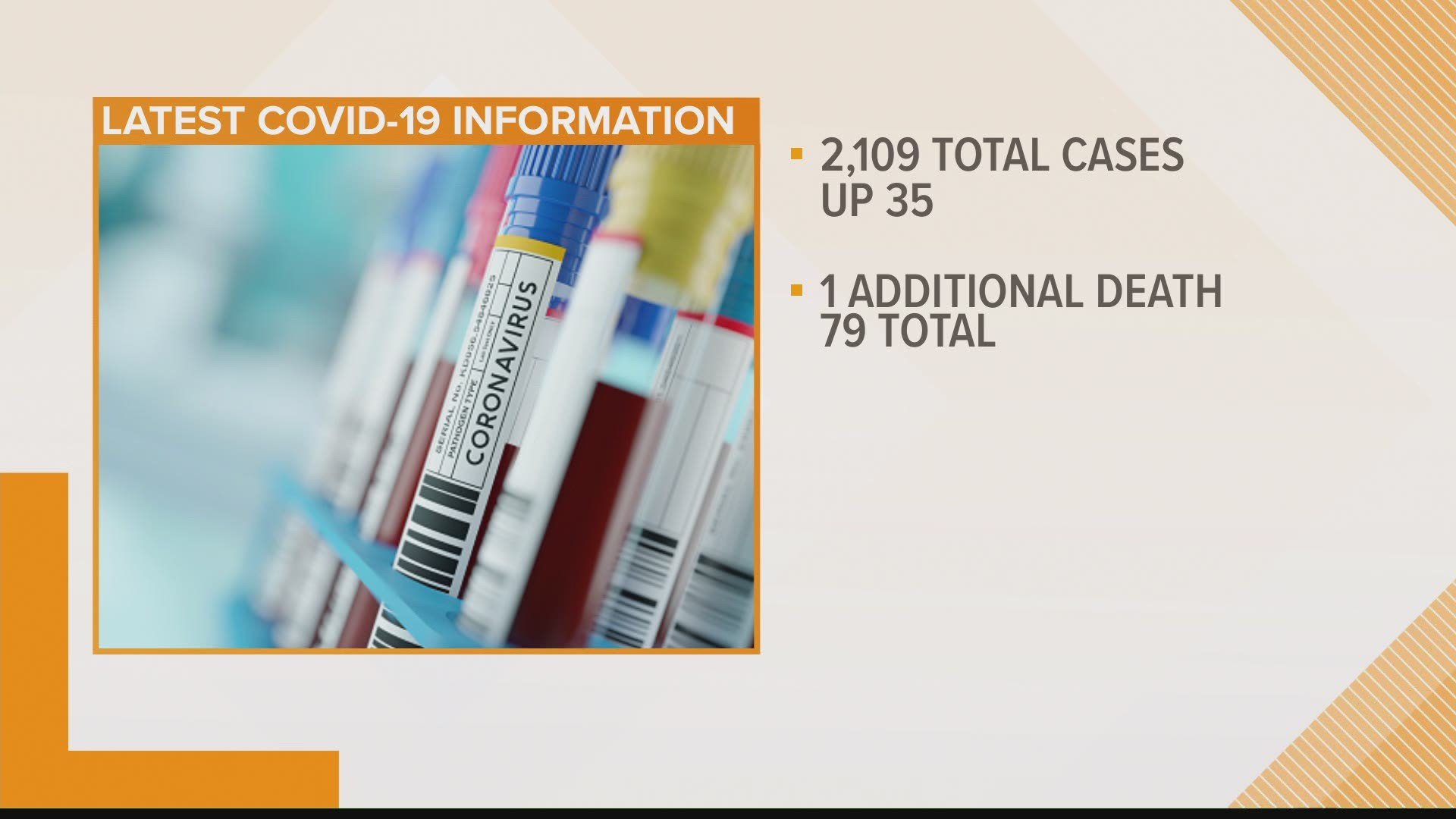AUGUSTA, Maine — The Maine Department of Health and Human Services (DHHS) is 'significantly' expanding contact tracing to limit the spread of COVID-19, Gov. Janet Mills announced on Tuesday. Maine DHHS is increasing the number of skilled staff and volunteers, harnessing innovative technology, and securing social services to help people with COVID-19 maintain self-isolation.
Contact tracing is the process of identifying, assessing, and protecting people who have been exposed to a disease to prevent their transmitting infection to others. Expanding this effort, coupled with the State's increased testing capacity made possible by the partnership with IDEXX Labs, will allow Maine to "identify, investigate, and isolate individuals with COVID-19 to prevent its spread in the absence of effective treatment or a vaccine," the Governor's Office says in a press release.
“Expanded testing and contact tracing are critical to both identifying and limiting the spread of COVID-19 in Maine,” Mills said in a statement. “By increasing the number of people conducting contact tracing and by deploying the new Sara Alert system to assist us, we can improve our efforts to mitigate the spread of the virus, protect the health of Maine people, and support our goal of safely restarting Maine’s economy.”
Maine DHHS Commissioner Jeanne Lambrew is speaking at the daily Maine CDC coronavirus briefing to speak more about the announcement.
Maine's contact tracing strategy has three components:
- Increasing Personnel: The Maine CDC currently has a contact tracing and case investigation team of approximately 30 people. It expects to more than quadruple this team as needed through the following steps:
- Immediately enlisting the help of 50 trained volunteers, who have offered their skills through Maine Responds, a system to tap into health care, public health, and emergency volunteers to respond to emergency situations. These volunteers will assist for at least two months and will start training the week of June 1, 2020.
- Begin hiring up to 125 contracted staff over time for up to 12 months to supplement Maine CDC’s work. This hiring will be staggered based on COVID-19 trend data and will include those with proficiency in multiple languages.
2. Deploying Sara Alert System: Maine CDC has deployed a new tool called Sara Alert to support monitoring and reporting of COVID-19 in Maine. The Sara Alert system, which is also used by several other states, allows individuals who have been diagnosed or potentially exposed to COVID-19 to report daily symptoms through web, text, email, or calls. The tool provides real-time insights and increased reporting capability to support containment of the virus. It also enables hospitals and health systems to conduct contact tracing for their own employees. As it deploys the new system, Maine CDC is also working with partners to improve it, including implementing language translations for non-English speaking individuals. Maine CDC began using Sara Alert last week and already has logged 345 contacts in the system as of May 25.
3. Expanding Social Supports: Staying apart from people for a period of time to protect the public health is a challenge for all, let alone for those who may have low incomes or struggle with housing, food security, transportation, mental or substance use disorders, or access to affordable healthcare and childcare. To address these challenges, DHHS is expanding its social supports for people isolated or quarantined because of exposure to COVID-19 by contracting with Community Action Programs (CAPs). Once finalized, these arrangements will offer individuals in isolation or quarantine social supports such as delivered meals, prescriptions, and behavioral health counseling. DHHS will also contract with Wabanaki Public Health for support for Native Americans. It will engage Catholic Charities, which operates the State’s refugee program, to help with language translation for non-English speakers. Maine DHHS will also assign a point person to coordinate this work statewide.
“Contact tracing has been an important part of our response to COVID-19 since the first case was identified in Maine,” Maine CDC Director Dr. Nirav Shah said. “Enhancing our contact tracing technology and workforce now allows us to make best use of expanded testing capacity at our lab.”
RELATED: COVID-19 cases spike in two Maine counties causing concern for state officials, report says
--
At NEWS CENTER Maine, we’re focusing our news coverage on the facts and not the fear around the illness. To see our full coverage, visit our coronavirus section, here: /coronavirus
NEWS CENTER Maine Coronavirus Coverage

